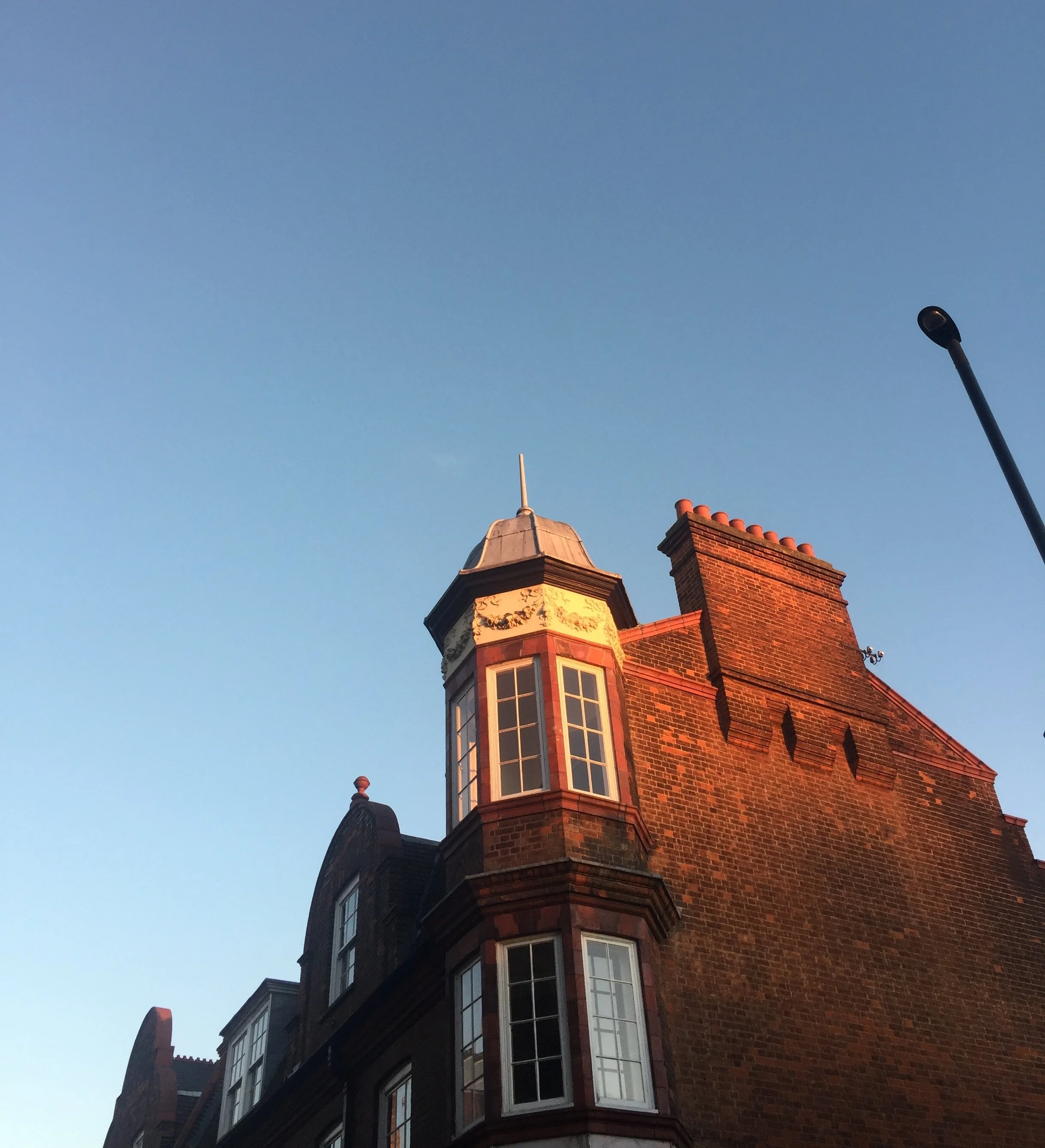Continental Cambridge I
Julie Luebken
Let’s start at the beginning: it’s moving day in Bruxelles, my sister cinematically runs alongside the overflowing car in a dramatic farewell moment. My dad and I are about an hour behind schedule to get the ferry to the faraway country. Much like I imagine explorers to have done, I am perched on the deck of a grandiose ship, wind graciously blowing my hair into a knotted nest as I search for the first glimpse of land. In true European fashion, I sneakily buy my last pack of duty-free cigarettes before scurrying to the car, too excited to finally begin a new adventure.
The actual arrival was a lot less romantic. The endless amount of stuffI brought, whether childhood mementos or IKEA supplies I’ll never use, made the trek to my new room a tiresome and sweaty one. Dad, seriously, you need to go now, I want to be the first to see my new room. After I exiled my helping hand, I discovered my rustic abode. Bed, chair, desk, lamp, everything was there. Was this the Cambridge charm? High ceilings, little light, lots and lots of wood but mostly no space for all my stuff. My new 19th century home was not the Versailles I had imagined – maybe I wasn’t the European princess I thought I was.
Credit: Julie Luebken
Soon, this hypothesis was disproved. Striding along the quaint Cambridge streets towards a pub with my new English friends, many were amazed by the fact that I have two nationalities. How does that work? You have TWO passports? Yes, actually, and I didn’t have a single one on me when I ordered at the pub. I could not remember the last time someone asked me for my ID. Little did I know, this temporary amnesia would follow me throughout the next two years, leading me to lose my fabulous European passports in every Cambridge club. I’d kill to have an English driver’s license.
Many discoveries became highlights of the first wondrous days of my English experience. These include, but are not limited to: Wetherspoons, Sainsbury’s, wine bottles without corks and the disdainful glances you get for smoking a cigarette. The most shocking aspect of my new-found knowledge: the school system. I found that the question ‘where did you go to school?’ was one that came up quite a lot. Some would even tell me quietly, as if it were some sort of secret, ashamed of their privilege. I had heard of Eton, but the many distinctions between comprehensive, grammar, public and private were utterly unknown to me. Turns out I had a lot more to learn than I thought.
Learning hasn’t exactly been the easy upward-curve I expected. Oftentimes discussions about the school system get particularly defensive and personal. It’s become clear that the English don’t entirely feel at ease with the framework they have in place and the way education comes to reflect deeper class divides. Coming from France, where you either go to public school or are religious, this took me longer to grasp than I want to admit. Apparently, you can even tell from someone’s accent where they went to school and how rich or poor they are. Honestly, astounding. There also seems to be a lot of anger attached to the system. In discussion, I have often observed the eager defense of grammar schools, not as pillars of privilege but of opportunity, for anyone of any background to join. Going to school in England means tests, training and uniforms. It also means a lot of inequality. This cannot be showcased better than through last summer’s A-Level fiasco in which students from more disadvantaged schools received lower grades than those from schools that are traditionally high-achieving. Your postcode determines your standard of education.
This may not be anything new to anyone, but I, for one, was completely in the dark. Sitting and observing conversations around class, education and race over the past 2 years has led me to question the school systems I have known. Having an exterior culture to scrutinize, and even (at times) to criticize, I wonder what there is about my culture that I completely ignore? What systemic inequalities or oddities? Believe me, I love bad-mouthing England, but my two native countries, France and Germany, have a long way to go to in improving their systems, which remain classist and racist. School segregation in France comes in the form of geography: schools in the banlieuehave a reputation for violent behaviour towards teachers, exemplified by the murder of Samuel Paty in October 2020. While laïcitéis often heralded as the great equalizer, inequalities in funding mean the quality of education differs depending on where a student lives. The lycéeHenri IV in Paris is supplied with some of the best teachers and resources in the country. As you move out of the luxury of the city center, standards tend to fall. It seems that, as in the UK, government incentives to teach the children of the disadvantaged are low. Perhaps, there aren’t as many differences between the English and French as I initially thought.
